If your Hyundai Tucson’s steering wheel is hard to turn, it’s almost always going to be caused by an issue with the power steering system. But there can be other causes as well.
Your vehicle’s power steering system is responsible for taking energy from the engine, converting it to hydraulic pressure, and using that pressure to decrease the amount of force that you need to apply to the steering wheel.
The first thing you should do is check your Tucson’s power steering fluid level.
| Cause | Notes |
|---|---|
| Low Power Steering Fluid | There’ll be a whining noise that changes when you move the steering wheel. |
| Power Steering Pump | There will be a noise similar to low power steering fluid, but the reservoir will be full. |
| Loose Or Broken Serpentine Belt | There will likely be a squealing or chirping noise unless the belt is missing. |
| Rack and Pinion | May lessen or go away as your Tucson warms up. |
| Bad Power Steering Fluid | May appear dark or black. Noise free. |
| Low tire pressure | Tire pressure light may be on. Check the pressure. |
Here are six of the most common reasons why your Tucson’s steering wheel may be hard to turn.
Table of Contents
1. Power Steering Fluid Low
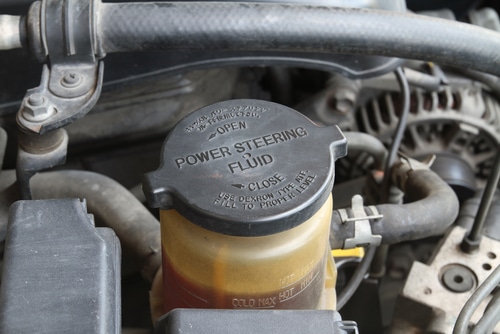
The place to start looking for what is making your Hyundai Tucson’s steering wheel hard to turn is the power steering fluid. If enough of it has leaked out, your vehicle will no longer have enough to properly function.
This is the most common reason that the power steering stops working. Putting fluid back in may solve the problem for a bit, but if has leaked, it will leak out again.
Finding the cause of the leak is the only way to stop periodically filling it. Check the hoses around the pump. That’s where they most often leak.
You should have been hearing an almost grumble like sound as you moved the wheel if this were the case. It won’t grumble or wine if ALL the fluid is out though. Here’s more on sounds you could hear under the hood.
2. Power Steering Pump Failure
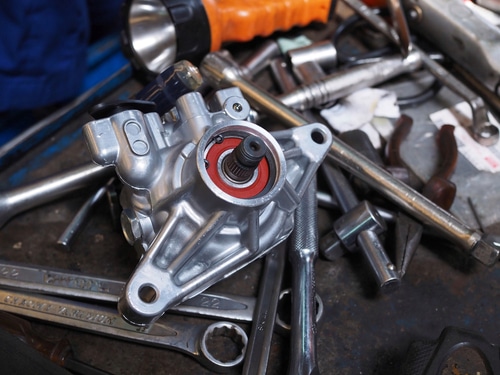
Before power steering, it would take many turns of the steering wheel to move the wheels. Many turns made it easier for the driver to move the wheels (by leveraging mechanical advantage), but it was still much harder than driving a non power assisted vehicle.
Since now you only get a few turns of the wheel, it can be almost impossible to drive a modern vehicle without power steering.
The power steering pump itself can go bad. If it is no longer pumping fluid to your Tucson’s rack, it can’t pressurize the power steering lines and there will be no steering assistance.
3. Loose or Bad Serpentine Belt
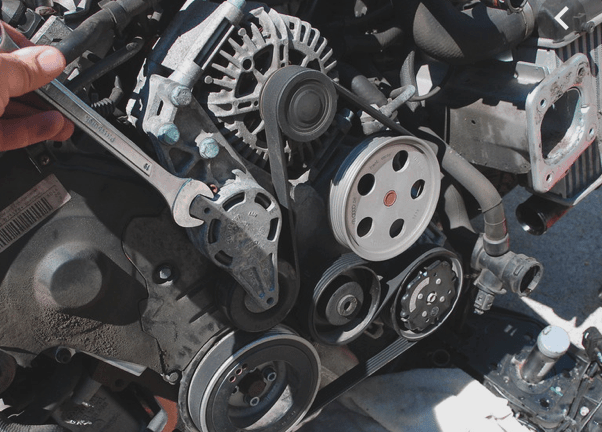
You can check the belt that turns the power steering pump. Does it look worn or damaged to you? Is it shiny and glazed?
With the engine off, pinch it lightly and try and move your fingers. If doesn’t grip them at all, that could be a sign of a bad belt.
4. Bad Steering Rack
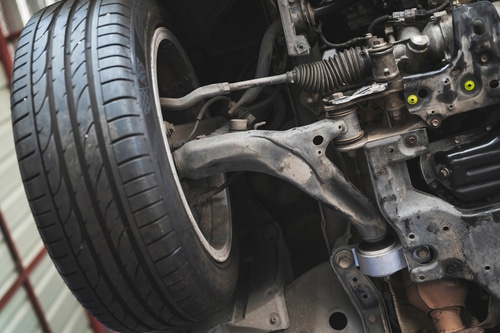
The rack is what takes the pressure from the power steering system and actually applies it to your Hyundai Tucson’s wheels.
If it is the rack that is causing the problem, it’s typically going to manifest itself more when the vehicle is cold. As it warms up the problem will go away (at first). Eventually, it never goes away.
5. Bad Fluid
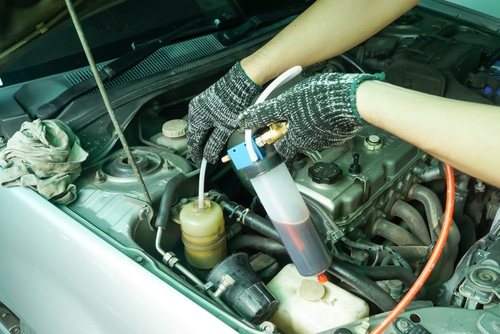
It is possible that the power steering fluid has gotten so thick over time that it is no longer properly doing its job as a hydraulic fluid. If this is the case, you’ll need to flush your Tucson’s power steering fluid.
6. Low Tire Pressure
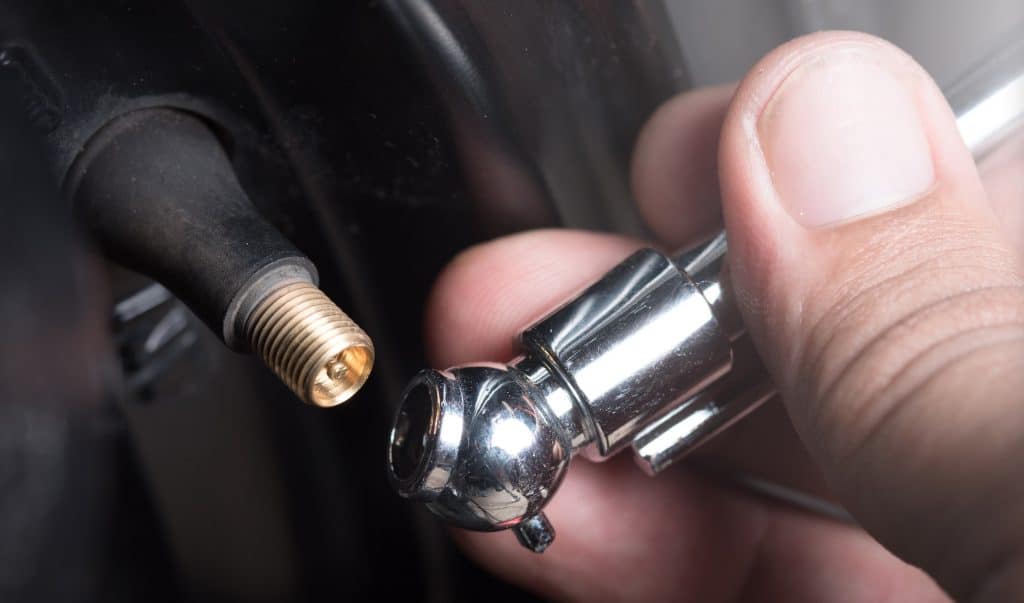
Low tire pressure can cause your Hyundai to be more difficult to turn than normal. As the tire pressure decreases, the sidewalls and you’ll get a stiff steering wheel.
Your Tucson’s tire pressure light won’t come on until about 25% of the air pressure is missing. By the time the light comes on, the wheel will be harder to turn. Low tire pressure can also cause your Hyundai Tucson to get bad gas mileage.
If you’re having a hard time steering your Tucson, it is a safety issue. We recommend bringing it in for service right away.
If it was out of fluid, make sure to keep an eye on the fluid level. You don’t want to run out again and burn up the pump.

